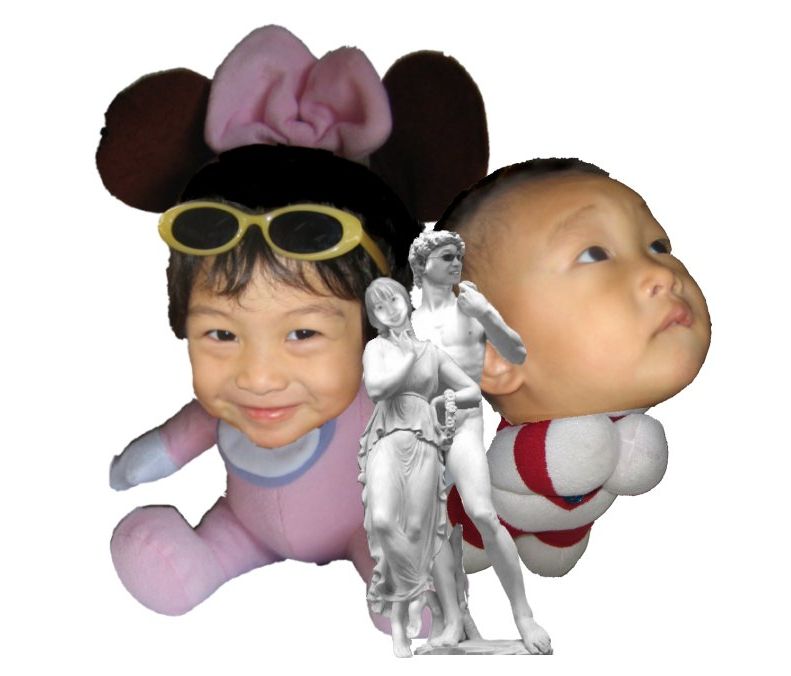
I would be lying if I told you that the stomach is the only way to a man's heart. I think there are three main channels to a man's heart. One is through his stomach, another through his eyes, and the last, well, make a wild guess. The first channel is actually a well known fact, and is the topic of this blog. The second has to do with us humans being creatures of sight, I mean we depend heavily on our sight in our daily lives. So it is only natural that we get pretty excited about what we see. Finally, the last channel, let's just say that it has to do with our biological reproductive urge.
While in Japan, all three channels will automatically shift into hyperdrive. But, let's limit this article to food for the time being. Having been deluged with a barrage of spicy food since young, my initial impression of Japanese food was that they were all pretty bland. Unlike tabasco sauce-laced pizza or a typical Szechuan steamboat affair, it is generally agreed that Japanese food does not assault our gastronomical senses. It takes time to get acquainted with and grow fond of Japanese cuisine. Recently, I am rediscovering Japan from a different perspective. Through its food.
I had yakiniku (焼肉) or grilled beef lunch today. Coming into existence into the Japanese gourmet scene only fairly recently as a foreign import, yakiniku is basically beef slices barbequed over open fire. There would be nothing much to say about yakiniku using imported beef, however yakiniku using wagyu (和牛) or Japanese beef need only be tried once to understand how mind blowingly delicious it is. The restaurant I had wagyu yakiniku this afternoon had the most perfect setting. Traditional Japanese music, antique decors and ambient lighting all served to heighten my mood for the feast.
Wagyu meat is tender and juicy even after being grilled well done. I don't know how true it is, but I once heard that Japanese-bred cows live a life of luxury, being served beer and massaged until all their fat disperse into the meat. In the past, only the rich and affluent could afford wagyu, but now with recent cost cutting measures hitting everywhere across Japan, even average Joes like me can afford a nice wagyu lunch. Still, a typical meal might cost 2-3 times what you would pay for an average lunch in Japan.
I truly enjoyed my lunch today. After I paid the cashier, and stepped out of the restaurant, I got a strange feeling that I just had my first out of this world experience. It was that astounding.
While in Japan, all three channels will automatically shift into hyperdrive. But, let's limit this article to food for the time being. Having been deluged with a barrage of spicy food since young, my initial impression of Japanese food was that they were all pretty bland. Unlike tabasco sauce-laced pizza or a typical Szechuan steamboat affair, it is generally agreed that Japanese food does not assault our gastronomical senses. It takes time to get acquainted with and grow fond of Japanese cuisine. Recently, I am rediscovering Japan from a different perspective. Through its food.
I had yakiniku (焼肉) or grilled beef lunch today. Coming into existence into the Japanese gourmet scene only fairly recently as a foreign import, yakiniku is basically beef slices barbequed over open fire. There would be nothing much to say about yakiniku using imported beef, however yakiniku using wagyu (和牛) or Japanese beef need only be tried once to understand how mind blowingly delicious it is. The restaurant I had wagyu yakiniku this afternoon had the most perfect setting. Traditional Japanese music, antique decors and ambient lighting all served to heighten my mood for the feast.
Wagyu meat is tender and juicy even after being grilled well done. I don't know how true it is, but I once heard that Japanese-bred cows live a life of luxury, being served beer and massaged until all their fat disperse into the meat. In the past, only the rich and affluent could afford wagyu, but now with recent cost cutting measures hitting everywhere across Japan, even average Joes like me can afford a nice wagyu lunch. Still, a typical meal might cost 2-3 times what you would pay for an average lunch in Japan.
I truly enjoyed my lunch today. After I paid the cashier, and stepped out of the restaurant, I got a strange feeling that I just had my first out of this world experience. It was that astounding.










